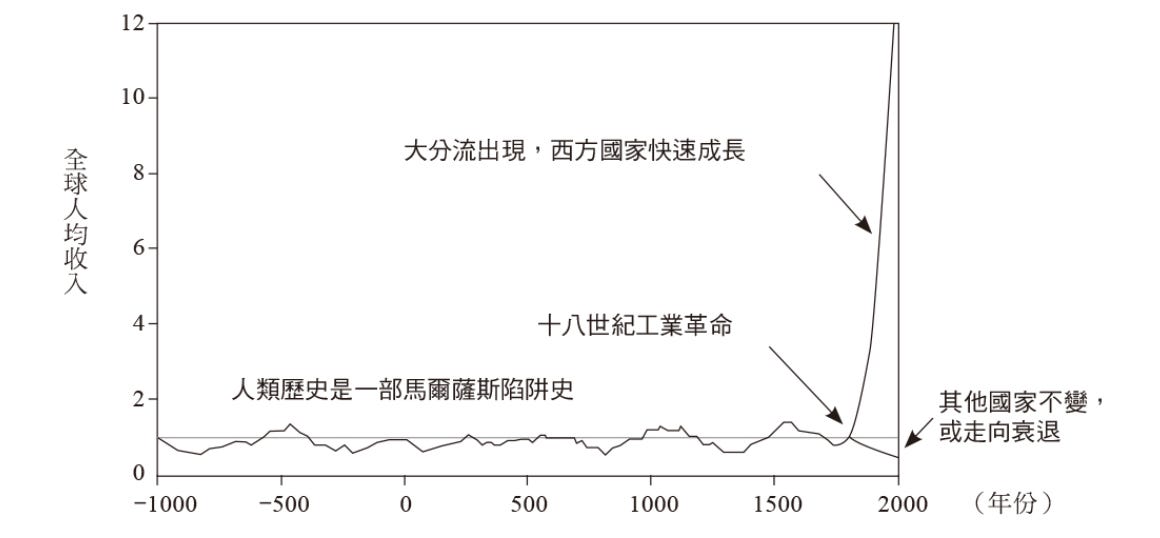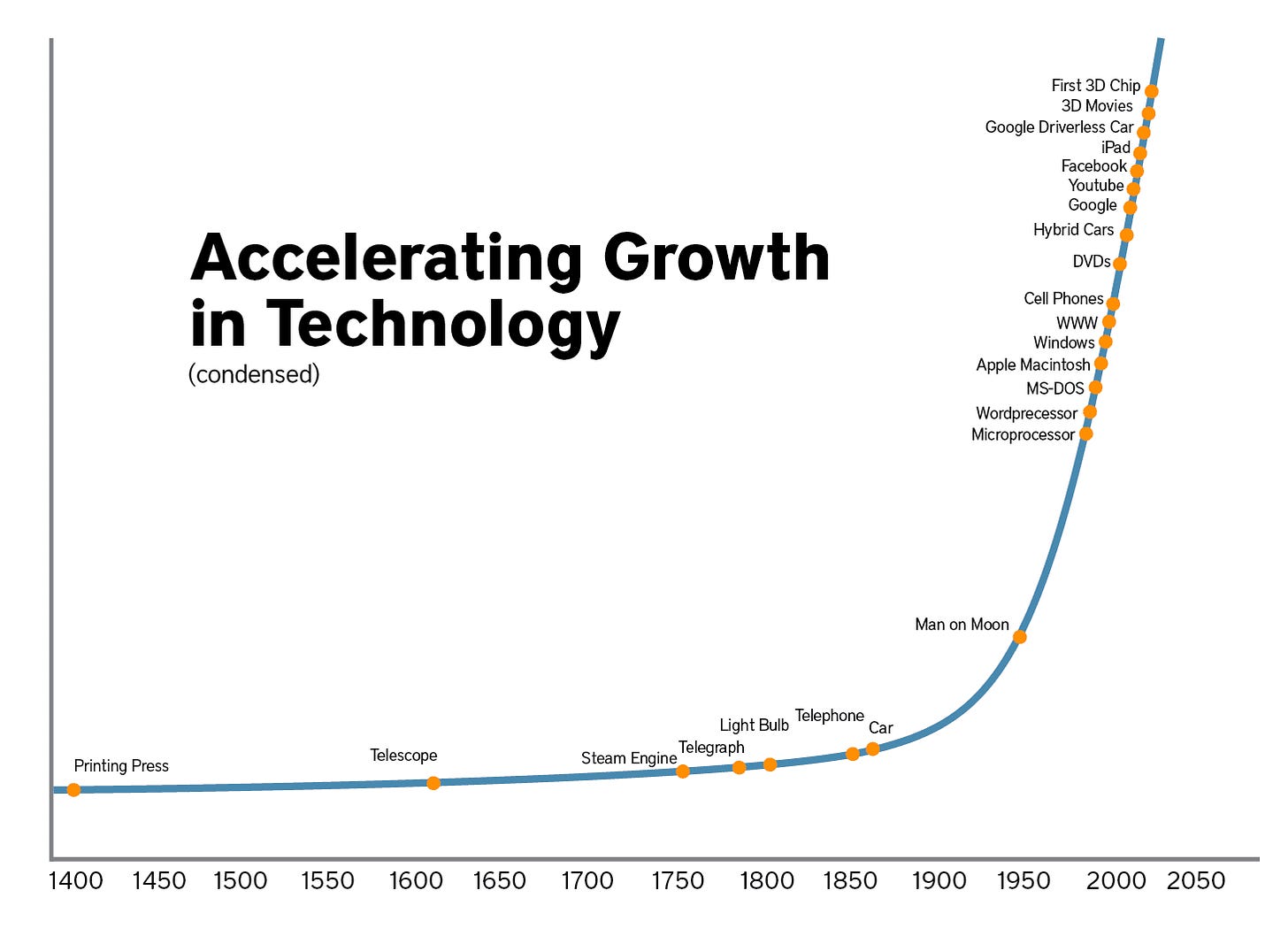"The Logic of Civilization": Digital Resilience is More Important than Increasing Productivity
#526
GM,
I enjoy browsing through books in bookstores, but I rarely finish reading an entire book. As soon as I come across a powerful argument or useful concept, I feel content and find it difficult to digest more of the brilliant content. Recently, I stumbled upon the book "The Logic of Civilization: The Game between Humans and Risks," which points out that "risk" is the driving force of civilization's development. The author, Chen Zhiwu, believes that the development of human civilization is mainly to cope with two challenges – low productivity and poor risk response capabilities – and that improving risk response capabilities is even more important than increasing productivity.
Although the content of this book is not related to blockchain, it is quite suitable for explaining why the public is optimistic about the development of AI, but only a few people realize the importance of blockchain and Web3.
Productivity First
Throughout history, human civilization has been progressing. But based on what indicators do we measure the progress of civilization, or have there been times when civilization has regressed in history? Would you believe it if I said that today's human civilization is the same as it was 2,000 years ago?
Many historians and economists often use productivity as an indicator to measure the development of civilization – how much output can be achieved in a unit of time, how much income can be earned. Being able to do more and earn more money in the same amount of time is a symbol of civilization's progress. Conversely, it is a sign of civilization's regression or stagnation. To put it more simply, it's GDP (Gross Domestic Product). Countries with higher per capita GDP are generally considered to be developed countries.
As a tenured professor of finance at Yale University, Chen Zhiwu is very familiar with this:
At the first Quantitative History Workshop held at Tsinghua University in Beijing, Professor Gregory Clark, an economic historian from the University of California, stated, "There has only been one event in human history, and that is the Industrial Revolution of the 18th century. There is only a division between the pre-industrial world and the post-industrial world. The only event worth studying in human history is the Industrial Revolution, and everything else is relatively unimportant details." This statement shocked the teachers and students present. He said this because, from the 10th century BC to the 18th century AD, the annual global per capita income had hardly changed over nearly three thousand years. Although there were fluctuations during this period, it did not change the long-term trend of constant labor productivity.
I wonder if you have ever seen a curve chart similar to the one below on the internet. Although the content of each chart is not exactly the same, the message they convey is more or less the same – we are all living in the golden age of the fastest development in human history. But several times when I saw this chart, I couldn't help but question: "Were ancient people really that useless?"
From the perspective of productivity in history, this indeed seems to be the case.
The book points out that as early as 200 BC during the Qin and Han Dynasties, the average annual income in China was about $450. However, even until the 1950s when our elders were born, the average income in China was still only $439. If we regard per capita income as an indicator of the development of civilization, the conclusion would be that there has been no progress in Chinese civilization for more than 2,000 years, and even a slight regression. How could this be possible?
Chen Zhiwu wants to point out this absurdity. He believes that to fully interpret the development of human civilization, measuring it solely by the "level of productivity" is not enough. It is necessary to add "risk response capacity" for a more comprehensive assessment. In fact, risk is an even more important catalyst for civilization than productivity.
Human development before the Industrial Revolution was not without achievements, but it was focused on refining another ability that is generally not valued today - risk response capacity. In layman's terms, what should people do when "just in case" situations occur?
Digital Resilience
Many social systems may not necessarily increase productivity, but they can effectively reduce risk, including marriage, faith, and even financial systems that are now commonplace. These systems were developed by humans to cope with risks. According to the book's summary:
Professor Chen Zhiwu clearly points out that in existing literature, the view of history that values "productivity alone" is used to evaluate the changes in civilization, and other indicators are not important. A great innovation is useless if it cannot increase productivity and does not raise per capita output per year, even if it can improve human risk response capacity and make people live more at ease.
Under the "productivity alone" view of history, many famous paradoxes have emerged, such as the extreme view that "only the Industrial Revolution in human history is worth studying" because it led humans out of the "Malthusian trap." Furthermore, Jared Diamond's analysis in "Guns, Germs, and Steel" suggests that although agricultural people worked longer hours, they failed to escape the challenge of subsistence for thousands of years, concluding that "agriculture is the most serious mistake in human history." All these seemingly hard-hitting insights overlook the importance of "risk response capacity." The purpose of this book is to correct this traditional view of history and civilization. In addition to productivity, we need to add another indicator: human "risk response capacity" to help us more fully interpret the course of human civilization.
Technology is an important part of human civilization development, so some people also include various new technologies in that index chart. If you want to add a new technology to the end of the curve in the upper right corner of the chart below, it would definitely be ChatGPT - it meets people's familiar "productivity alone" view of history, helping people increase productivity and earn more income.
However, new technologies that help people cope with risks are still regarded as useless by most people in the 21st century, and even a waste of resources. The risks people face now are not limited to natural disasters and human disasters, but also threats from the digital world, and the source of these threats may be foreign governments, such as the cyber-attacks and misinformation that Taiwan faces every day.
Take the August 2022 cyber-attack on the Taiwanese government from China as an example. At that time, the websites of the Presidential Office, Ministry of National Defense, and Ministry of Foreign Affairs were all attacked by foreign traffic using a "phone line jamming" method, rendering them inaccessible to users who wanted to open the websites.
At the time, the newly launched website of the Digital Development Department also suffered an attack. However, the back-end of the digital department's website used the InterPlanetary File System (IPFS). Although people could not access the website using the familiar HTTPS, users only needed to change the address field to ipns://moda.gov.tw to visit the site as usual, without being affected by the "phone line occupation" attack.
The digital department's decision to build the website on IPFS did not increase productivity, but it allowed the government website to maintain normal operation under extreme circumstances. This is a concrete manifestation of risk response capability in the field of technology, also known as "digital resilience." However, most people not only have difficulty understanding the specific use of IPFS, but also few government agencies and corporate websites follow suit. Improving digital resilience is like "buying insurance," often seen as a non-essential measure or additional expense, with benefits only visible in extreme situations.
In fact, not only can the Taiwanese government use IPFS to enhance digital risk response capabilities, individuals can also avoid article removal by publishing on Matters or protect their assets from being frozen by holding cryptocurrencies. This helps reduce risk.
Preventing Disasters Before They Happen
Readers familiar with the blockchain space are certainly no stranger to these extreme examples. However, if one has never personally experienced them, it's easy to feel that these "disasters" are other people's stories and seem distant from oneself. This is the biggest challenge in enhancing "risk response capability."
Many Web3 participants were initially attracted not by the price of cryptocurrencies, but by personal experiences with various "disasters." For example, Ethereum founder Vitalik Buterin's game character abilities were weakened, "The Infinite Machine" author Camila Russo's hometown of Argentina was experiencing severe inflation and strict foreign exchange controls, and Hong Kong civil organizations were falsely accused of money laundering by the government and had their accounts frozen.
From gaming, finance, to national laws, people discovered that these "disasters" all came from centralized systems and began exploring the feasibility of decentralization. However, current decentralized technologies are not yet mature, and many times people are swallowed by new risks (such as hackers) before they see the effectiveness of risk response. This leads many to mistakenly believe that Web3 is just a boring money game, even unconsciously applying "productivity" logic to measure the benefits of adopting blockchain, ignoring its value in enhancing risk response capabilities.
"The Logic of Civilization" not only narrates the developmental context of human history but also reminds people that if they want to promote digital civilization progress, it relies not only on productivity-increasing artificial intelligence but also on blockchain technology to enhance risk response capabilities.
Blocktrend is an independent media outlet sustained by reader-paid subscriptions. If you think the articles from Blocktrendare good, feel free to share this article, join the member-created Discord for discussion, or add this article to your Web3 records by collecting the Writing NFT.
In addition, please recommend Blocktrend to your friends and family. If you want to review past content published by Blocktrend, you can refer to the article list. As many readers often ask for my referral codes, I have compiled them into a single page for everyone's convenience. You are welcome to use them.






